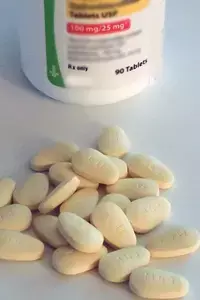- Home
- Medical news & Guidelines
- Anesthesiology
- Cardiology and CTVS
- Critical Care
- Dentistry
- Dermatology
- Diabetes and Endocrinology
- ENT
- Gastroenterology
- Medicine
- Nephrology
- Neurology
- Obstretics-Gynaecology
- Oncology
- Ophthalmology
- Orthopaedics
- Pediatrics-Neonatology
- Psychiatry
- Pulmonology
- Radiology
- Surgery
- Urology
- Laboratory Medicine
- Diet
- Nursing
- Paramedical
- Physiotherapy
- Health news
- Fact Check
- Bone Health Fact Check
- Brain Health Fact Check
- Cancer Related Fact Check
- Child Care Fact Check
- Dental and oral health fact check
- Diabetes and metabolic health fact check
- Diet and Nutrition Fact Check
- Eye and ENT Care Fact Check
- Fitness fact check
- Gut health fact check
- Heart health fact check
- Kidney health fact check
- Medical education fact check
- Men's health fact check
- Respiratory fact check
- Skin and hair care fact check
- Vaccine and Immunization fact check
- Women's health fact check
- AYUSH
- State News
- Andaman and Nicobar Islands
- Andhra Pradesh
- Arunachal Pradesh
- Assam
- Bihar
- Chandigarh
- Chattisgarh
- Dadra and Nagar Haveli
- Daman and Diu
- Delhi
- Goa
- Gujarat
- Haryana
- Himachal Pradesh
- Jammu & Kashmir
- Jharkhand
- Karnataka
- Kerala
- Ladakh
- Lakshadweep
- Madhya Pradesh
- Maharashtra
- Manipur
- Meghalaya
- Mizoram
- Nagaland
- Odisha
- Puducherry
- Punjab
- Rajasthan
- Sikkim
- Tamil Nadu
- Telangana
- Tripura
- Uttar Pradesh
- Uttrakhand
- West Bengal
- Medical Education
- Industry
Cardiovascular medications beneficial for patients with type 2 MI: JACC

Sweden: Treatment with guideline recommended cardiovascular medications lowers death risk in patients with type 2 myocardial infarction (T2MI) and acute or chronic non‐ischemic myocardial injury, suggests a recent study in the Journal of the American Heart Association.
Patients with acute and chronic myocardial injury may lead to poor outcomes, despite this there are no recommended therapies for these patients. There is a limited information on whether cardiovascular medications are associated with a risk‐reduction in patients with non‐ischemic injury. To fill this knowledge gap, Martin J. Holzmann, Karolinska University Hospital, Huddinge, Stockholm, Sweden, and colleagues hypothesized that groups of treatment with angiotensin‐converting enzyme inhibitors/angiotensin receptor blockers (ACEi/ARB), β‐blockers, statins, and platelet inhibitors would reduce mortality and cardiovascular events in patients with T2MI, and non‐ischemic (acute or chronic) myocardial injury. In addition, the researcher hypothesized that the reduced mortality would be dependent on the number of drugs used.
For the study, the researchers identified 3853 patients from a cohort of 22 589 patients in the emergency department at Karolinska University Hospital in Sweden during 2011 to 2014. They were categorized into either type 1 myocardial infarction, T2MI, non‐ischemic acute and chronic myocardial injury. Data from all dispensed prescriptions within 180 days of the visit to the emergency department were obtained concerning β‐blockers, angiotensin‐converting enzyme inhibitors/angiotensin II receptor blockers, statins, and platelet inhibitors.
Key findings of the study include:
- In patients with T2MI, treatment with 2 to 3 and 4 medications was associated with a 50% and 56% lower mortality, respectively (adjusted HR 0.50 and 0.43), while corresponding associations in patients with acute myocardial injury were 24% and 29%, respectively (adjusted HR 0.76 and 0.71), and in patients with chronic myocardial injury 27% and 37%, respectively (adjusted HR 0.73 and 0.63).
"In this study, we show that patients with type 2 myocardial infarction, acute and chronic myocardial injury are infrequently prescribed β‐blockers, angiotensin‐converting enzyme inhibitors/angiotensin receptor blockers, statins, and platelet inhibitors. Patients with type 2 myocardial infarction, acute and chronic non‐ischemic myocardial injury have a lower risks of adverse outcomes if they are treated with higher numbers of cardiovascular medications," wrote the authors.
The study, "Treatment With Cardiovascular Medications: Prognosis in Patients With Myocardial Injury," is published in the Journal of the American Heart Association.
DOI: https://www.ahajournals.org/doi/10.1161/JAHA.120.017239
Dr Kamal Kant Kohli-MBBS, DTCD- a chest specialist with more than 30 years of practice and a flair for writing clinical articles, Dr Kamal Kant Kohli joined Medical Dialogues as a Chief Editor of Medical News. Besides writing articles, as an editor, he proofreads and verifies all the medical content published on Medical Dialogues including those coming from journals, studies,medical conferences,guidelines etc. Email: drkohli@medicaldialogues.in. Contact no. 011-43720751


